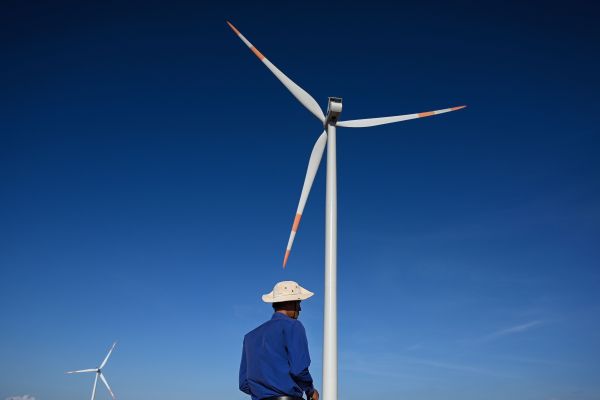For much of the 20th century, oil dominated foreign policy. Countries spent the better part of the century scrambling to secure supply. Sometimes it happened through negotiations and diplomacy. All too often it resulted in the overthrow of governments or outright invasions.
But with fossil fuels on the wane, we’re starting to get a glimpse of foreign relations in the 21st century, and it seems like investment will be the defining characteristic. Decarbonization diplomacy is looking a lot less violent than what preceded it.
It took a while to get to this point — probably too long — but the dam appears to be breaking.
Earlier this week, news broke that Vietnam was on the cusp of signing a deal that would help fund the country’s transition away from coal, which supplies about half its power. Led by the EU and the U.K., the deal would provide as much as $14 billion to replace dirty power plants with renewables. Between $5 billion to $7 billion of that will come from grants and loans, with the balance coming from the private sector, though the deal still isn’t finalized and could change.
Vietnam’s agreement comes on the heels of two other partnerships, one with Indonesia and the other with South Africa, that also seek to reduce the middle-income countries’ reliance on coal. The funding would likewise come in the form of grants, financing and private capital from the International Partners Group, a collection of wealthy nations including the U.S., the EU, the U.K., Japan, Canada, Norway and others.
Indonesia’s deal will include $10 billion in grants and loans from IPG and $10 billion in private investments over a three- to five-year period. South Africa’s deal, first announced last year with details announced earlier this month, sees IPG nations putting up $8.5 billion in grants, loans and investments over five years. It’s a fraction of the estimated $98 billion that the country will need over 20 years to rid its power sector of fossil fuels, but it’s a decent down payment.
The focus on investment rather than gunboat-style diplomacy is a welcome one.
That doesn’t mean that frictions won’t arise. Worldwide, the energy transition will need vast quantities of specialized metals like lithium, cobalt and nickel, rare earths like neodymium, and more prosaic metals like iron and copper.
While those metals aren’t evenly distributed about the globe, wars have yet to be fought over lithium or rare earths. There’s still time for that to change, but renewable energy technologies and rechargeable batteries aren’t highly dependent on one element or another. Sick of paying top dollar for cobalt? Why not try cobalt-free lithium-iron-phosphate batteries? Plus, many of the resources that still don’t have good substitutes, like lithium, are more broadly distributed and easily accessible than we first realized. In time, those might be substitutable, too. That’s not really the case with oil.
Notably, China hasn’t been mentioned in these deals. (The White House press release about Indonesia’s agreement said that the IPG was comprised of “likeminded countries” — a subtle jab?) China’s absence is notable because investment-focused diplomacy, led by the Belt and Road Initiative, has been a hallmark of Chinese foreign policy in the Xi Jinping era.
It’s surprising, too, given the country’s manufacturing lead in many sectors of the energy transition, including batteries and solar panels. The IPG deals may spur the Communist Party to rethink its Belt and Road goals, which to date have focused largely on legacy infrastructure like ports and railroads, as well as coal-fired power plants.
There’s still plenty that could go wrong with the IPG’s deals. Public dollars might kick-start an energy transition, and if private investments don’t materialize — or don’t reach the scale required — the countries could be on the hook for the remainder. If they can’t make up the difference, they might be left with a series of white elephants.
But at least decarbonization diplomacy is off to a positive start. You couldn’t say that about the carbon era.
